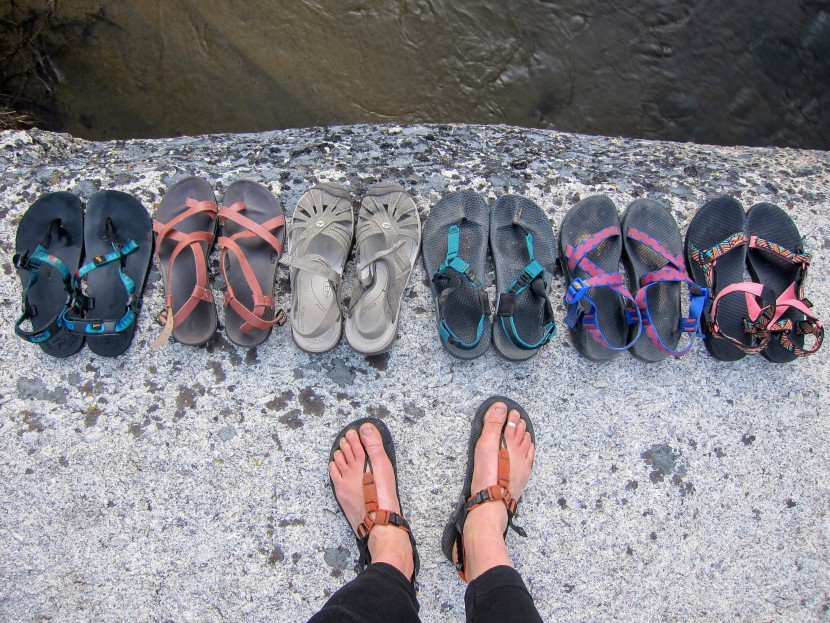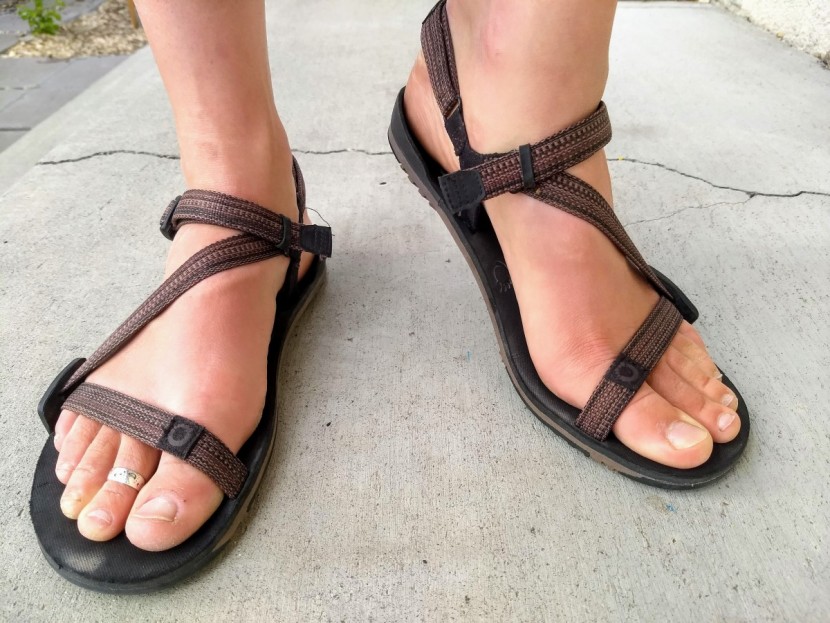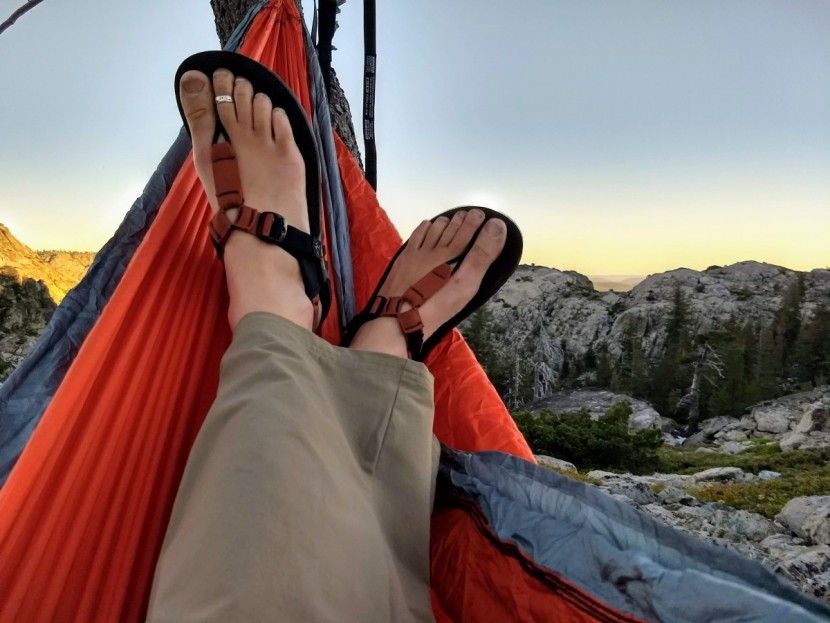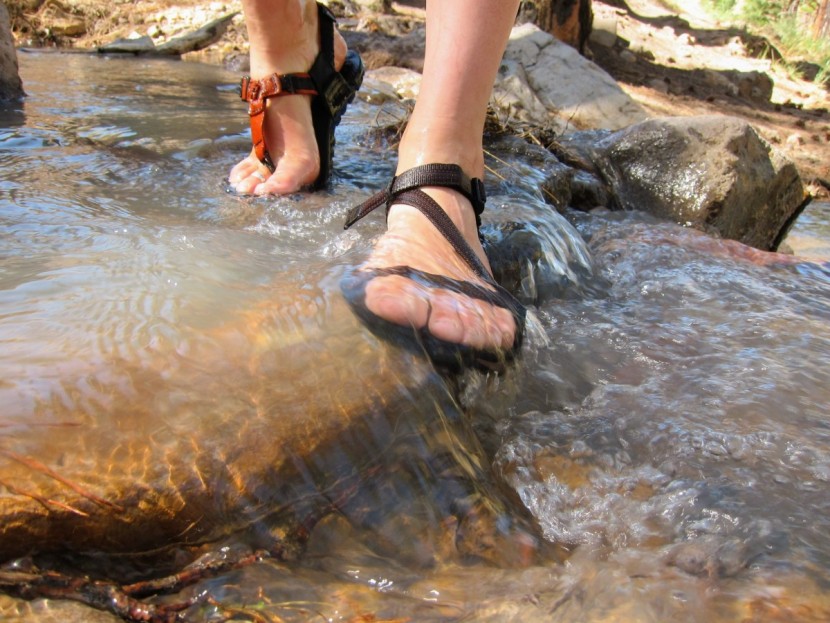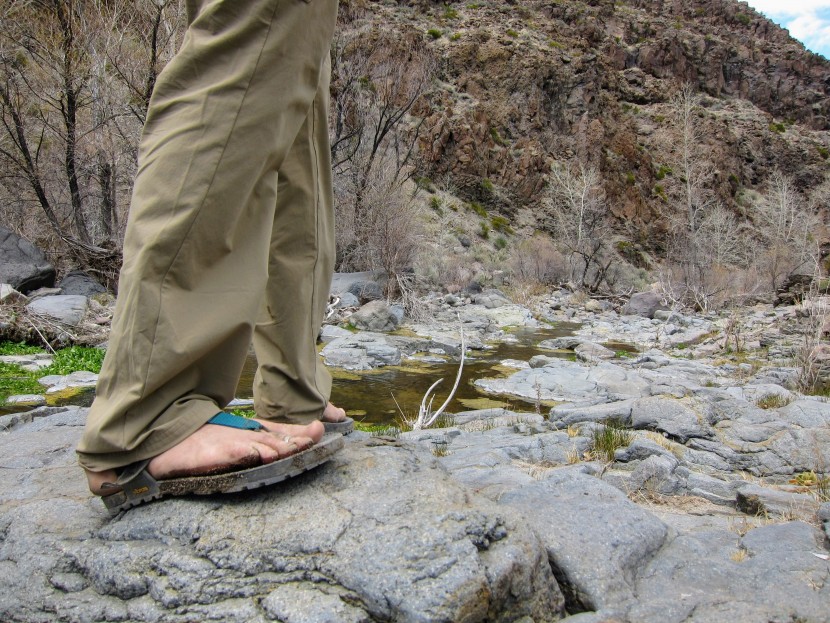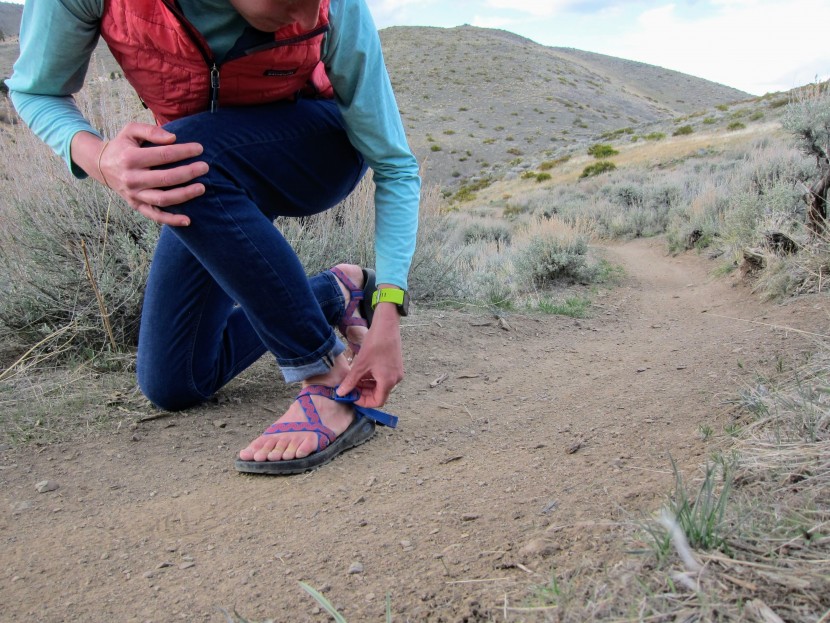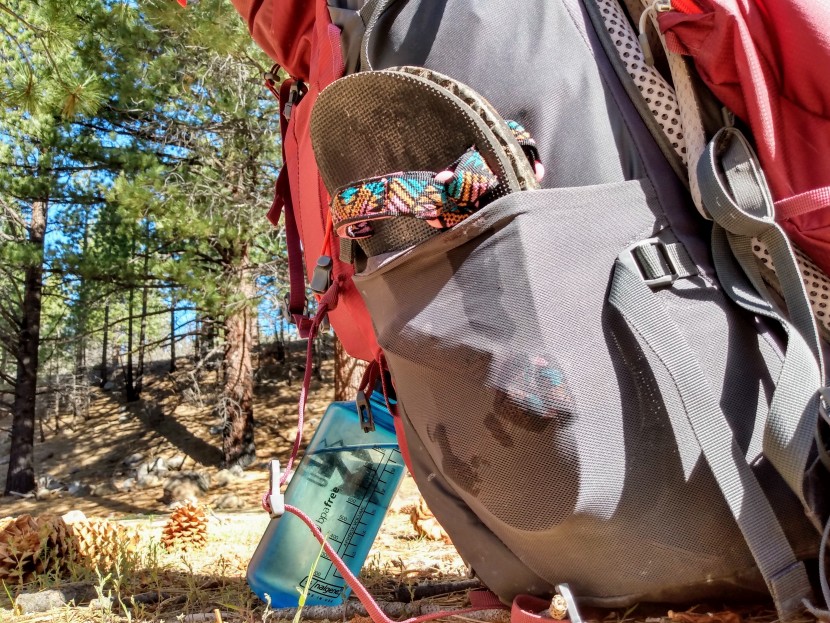We put our tested sandals through the wringer, wearing each of them for various activities to be sure to bring you a comprehensive look at their strengths and weaknesses. Our testers went on day hikes, multi-day trips with heavy packs, up and down rugged and easy trails, biking [and walking around town, through creeks in the mountains, and while kayaking. We compared each pair and evaluated them on key metrics of comfort, traction, adjustability, stability, versatility, and style so you can figure out which model best suits your outdoor and casual lifestyle.
Comfort
To assess comfort, we looked beyond first impressions and focused on how the sandals felt over time. Our testers wore them for extended periods—think full workdays, long walks or multi-day backpacks, and casual lounging—to capture both immediate cushioning and long-term wearability. We evaluated their break-in periods, whether any hot spots or blisters developed, and how the materials felt against the skin. We paid close attention to pressure points, arch support, and how the footbed adapted to different foot shapes. Testers also evaluated the straps for irritation or rubbing, particularly in warmer conditions when swelling or friction can exacerbate the issue. We wore each model with a heavy pack to determine how that affected the comfort of the footbed. We also noted whether differences in foot type (flat feet vs. high arches) or foot shape (wide vs. narrow) affected the comfort of each. Whether walking, standing or simply relaxing, the goal was to determine if comfort levels remained steady from morning through evening. We offer recommendations for sustained outdoor comfort as well as the best options for casual use and recovery.
Traction
To evaluate the traction of the sandals, we tested them on a variety of surfaces and conditions that reflect everyday unpredictability. We assessed the effectiveness of different grip patterns by walking and running in each sandal on various terrains, including loose scree, dirt trails, granite, and slick river rocks. Our proving grounds also included smooth concrete, loose gravel, wet tile, and grassy patches.
Our testers walked, pivoted, and stopped suddenly, both in dry and wet conditions, to observe how well the outsoles gripped under shifting pressure and momentum. We included incline and decline trails to simulate uneven urban paths and nature walks. We also monitored the traction between the footbed and our sweaty feet, as this significantly affects how well a sandal holds our foot in place. By carefully observing slip resistance, we learned hiking, canyoneering, pool hopping, and street walking how these sandals perform when the ground becomes challenging.
Stability
To evaluate the stability of our sandals, we designed a series of real-world tests that mimic how people actually move. We examined lateral support by having testers perform quick side steps and pivoting motions on various terrains, ranging from paved paths to uneven grass. Uphill and downhill walks allowed us to assess heel lockdown and rearfoot control. We also twisted our foot in each shoe to evaluate how well the arch structure held up under torsion. To simulate everyday loads, we carried weighted backpacks on hikes, which helped us observe how the sandals performed under pressure. Finally, we walked across slick, wet surfaces to test grip and stability in less-than-ideal conditions. For casual sandals, we evaluated how stability contributed to our natural gait and ability to stand on our feet or walk for extended periods. We have a comprehensive understanding of how grounded each step truly feels in different sandal options.
Adjustability
We measured adjustability by timing how long it took to get each shoe out of the box and properly fitted to our foot. We took note of whether each model was easy to adjust intuitively or if it required more effort and concentration to understand how the straps worked. Additionally, we counted the number of adjustment points on each model and noted if we wished there were more during our testing. We also attempted to adjust each model using just one hand and recorded whether or not this was possible.
Versatility
We assessed the versatility of each product by considering its overall performance in various activities and settings. We examined the number of outdoor sports each model was suitable for, its weight—since this impacts its portability on trips—and how well it adapted to urban life. A sandal received a high score if it excelled in both backcountry adventures and everyday use in town.

